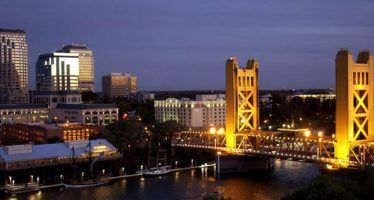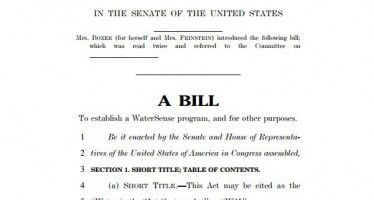Bill targets underground economy
JUNE 10, 2010
By KATY GRIMES
A bi-partisan bill is moving through the Legislature that proposes to punish an employer with a stiff penalty if it does not pay minimum wage. The proposed penalty increases the current damages to two times the wages unlawfully unpaid, plus interest. AB1881, authored by Assemblyman Bill Monning, D-Carmel, is sponsored by the California Rural Legal Assistance Foundation (CRLAF).
Employees can currently sue an employer when the employer pays less than minimum wage, but the damages are limited only to the wages unlawfully paid plus 10-percent interest.
According to Monning, California has an “underground economy” that generates between $60 billion and $140 billion a year, representing a tax loss of anywhere between $3 billion and $6 billion. A UCLA study found that Los Angeles County loses $26 million every week to the underground economy.
CRLAF representative Mark Schacht explained that the underground economy is made up of 18 million employees and includes employers who pay cash under the table, pay no employment taxes and rarely carry workers’ compensation insurance. The underground economy is found in agriculture, construction, the garment industry and car wash businesses according to Schacht. “This bill is a modest step,” said Schacht.
Stanford Law Professor Juliet Brodie explained to the committee that usual discussions surround striking a balance between the interests of the worker and business. She said that this bill is different because it intersects workers with employers who follow the rules. Competing businesses that fail to follow the wage rules are the only ones penalized under AB1881, according to Brodie.
Brodie’s testimony included some history as she explained that while California will be only the tenth state to adopt the increased employer damages for failing to pay minimum wage, the bill is not as restrictive as some states that include payment of overtime, tips and lost benefits.
Committee Chairman Mark DeSaulnier, D-Concord, asked Brodie if the penalties work as deterrents in other states. But Brodie said that was not her area of expertise and was not comfortable offering an opinion.
DeSaulnier said that the purpose of the bill was not just deterrence but getting the wages paid to the workers. “If we focus on the bad behavior of the employer, it raises the level of responsibility instead of punishing all employers,” said DeSaulnier.
Monning said the bill only goes after the unpaid wages, and not accounting errors in employee pay. “It will help the law-abiding employer who is underbid by cheating employers,” added Monning.
The resulting benefit to the state is the payroll taxes that will be realized when all employers pay employees properly and legally, according to Monning.
Also in support of the bill were the California Labor Federation, the Teamsters and the United Food and Commercial Workers.
In opposition: the California Chamber of Commerce, whose representative stated that the bill would hurt lawful employers, by creating more frivolous lawsuits. However, the Chamber agreed that the underground economy is hurting its members as well.
Monning reiterated that the intent of the bill is to level the playing field for law-abiding employers and employees.
At press time, the committee had not established a quorum and had not voted on the bill.
Related Articles
Mostly Good News On CA Pensions
NOV. 5, 2010 By STEVEN GREENHUT Those of us who applauded the national backlash against the Obama administration’s big-government overreach
LAO report: $1.3 billion state building plan lacks oversight
The $1.3 billion first phase of a project to build and modernize 11 state office buildings lacks adequate accountability and oversight and
Boxer-Feinsten water bill stresses conservation, not supply
There are two ways to manage water. One way is to capture more water and store it for dry years.




